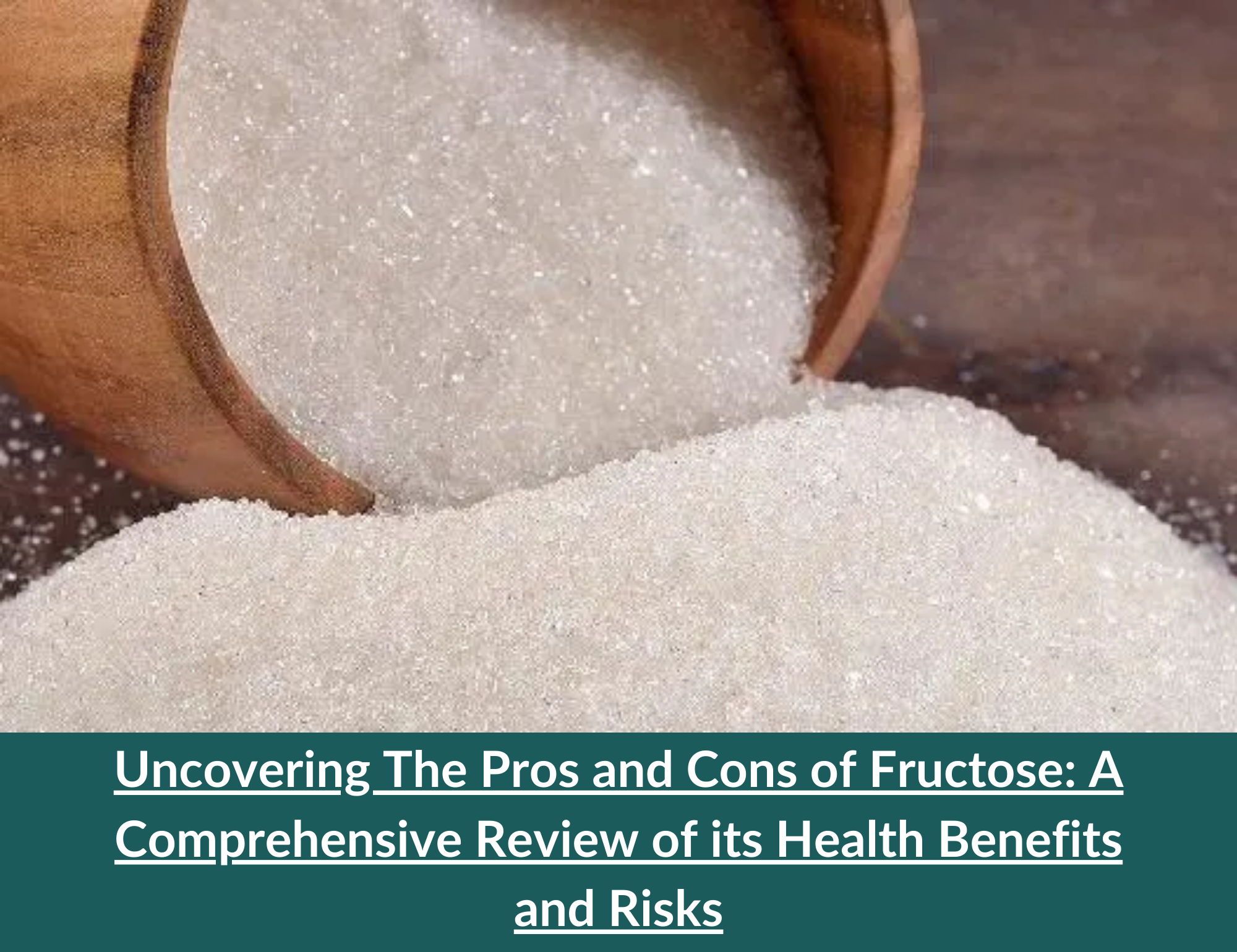Fructose is a simple sugar naturally present in many fruits, vegetables, and honey. It is also commonly used as a sweetener in the food industry. In recent years, much debate has been about the health benefits and risks of consuming fructose.
This article provides a comprehensive review of fructose’s health benefits and risks.
What is Fructose?
Fructose is a monosaccharide or simple sugar with the chemical formula C6H12O6. It is a naturally occurring sugar in many fruits, vegetables, and honey. It is also commonly used as a sweetener in the food industry, especially in soft drinks, energy drinks, and sweetened snacks.
Health Benefits of Fructose
Fructose, when consumed in moderation, can provide several health benefits. Some of the health benefits of fructose include:

- Low Glycemic Index: Fructose, a simple sugar found in fruits, has a lower glycemic index than glucose. A lower glycemic index means it is broken down and absorbed more slowly by the body, causing a slower and lower rise in blood sugar levels. Because of this, fructose is a suitable sweetener for people with diabetes.
- Energy Production: It is a good energy source metabolized in the liver to produce energy. It is a preferred fuel source for the brain and muscles during physical activity. Athletes often use fructose to replenish their glycogen stores after a workout.
- Low-Calorie: Fructose is lower in calories than other sweeteners, such as sucrose and high-fructose corn syrup. This feature makes it a popular choice for people trying to lose weight or reduce their caloric intake.
- Antioxidant Properties: Fructose has antioxidant properties that can help protect the body from oxidative stress. Oxidative stress is caused by an imbalance of free radicals and antioxidants in the body, which can lead to chronic diseases such as cancer and heart disease. Fructose’s antioxidant properties may help prevent these diseases.
Health Risks of Fructose
While fructose has some health benefits, excessive consumption can lead to several health risks. Some of the health risks associated with fructose include:
- Obesity: Excessive consumption of fructose has been linked to obesity. Studies have shown that consuming high amounts of fructose can increase appetite and calorie intake.
- Type 2 Diabetes: Fructose consumption has been linked to an increased risk of developing type 2 diabetes.
- Non-alcoholic Fatty Liver Disease: High fructose consumption can lead to the development of non-alcoholic fatty liver disease.
- Dental Health: Excessive fructose consumption can lead to dental caries or cavities, as it is an ideal food source for oral bacteria.
Fructose is a naturally occurring sugar commonly used as a sweetener in the food industry. When consumed in moderation, fructose can provide several health benefits, such as low glycemic index, energy production, low-calorie, and antioxidant properties.
However, excessive fructose consumption can lead to several health risks, such as obesity, type 2 diabetes, NAFLD, and dental health issues. Therefore, it is important to consume fructose in moderation to obtain its health benefits while avoiding its health risks.
Elevate Your customers Health-conscious Journey with EasyBuy’s Premium Fructose! Let them indulge in a sweet and healthy lifestyle with Our High-Quality Fructose!
Shop Now and Add the Natural and Delicious Sweetness of Fructose in Your Healthy Food and Beverages!
Citations
- Stanhope, K. L. (2012). Role of fructose-containing sugars in the epidemics of obesity and metabolic syndrome. Annual Review of Medicine, 63, 329-343.
- Bray, G. A., Nielsen, S. J., & Popkin, B. M. (2004). Consumption of high-fructose corn syrup in beverages may play a role in the epidemic of obesity. The American Journal of Clinical Nutrition, 79(4), 537-543.








